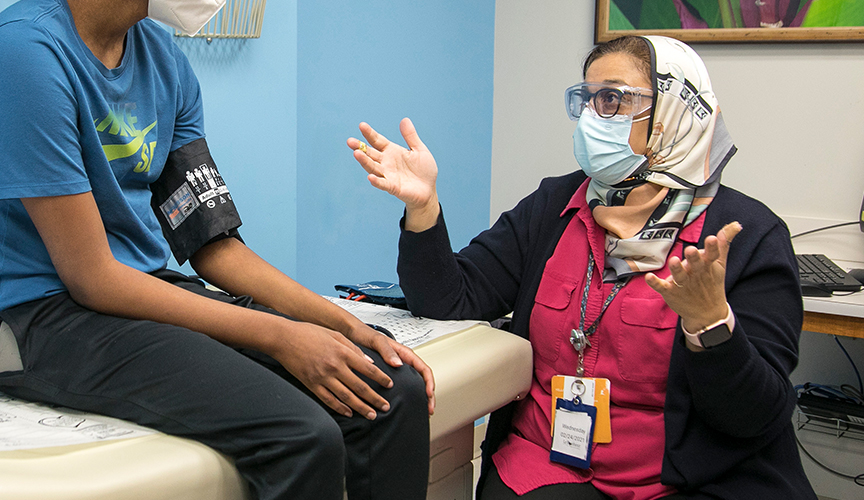Pediatric Onco-Nephrology: Time to Spread the Word
The need for pediatric nephrologists to develop a special expertise in the onco-nephrology field is increasingly important as childhood cancer rates have been on the rise and new therapy protocols are advancing, according to a Pediatric Nephrology article published by Le Bonheur Nephrologist Arwa Nada, MD. Nada also serves as a consulting nephrologist at St. Jude Children’s Research Hospital. The first of a two-part educational summary, Nada provides an overview of how pediatric cancer and its therapies can impact kidney function and the increasing need for involvement of pediatric nephrologists as an integral part of the care team for children with cancer.
“Children diagnosed with malignancy can experience unique and complicated forms of kidney injury at any stage of therapy and afterwards,” said Nada. “The pediatric nephrologist is an increasingly important member of the care team to mitigate and manage acute kidney involvement or injury during pediatric cancer treatment.”

Cancer and kidney disease have numerous interconnections. Historically, pediatric nephrologists have treated the kidney complications occurring during cancer therapy, such as acute kidney injury (AKI), fluid and electrolyte disturbances, tumor lysis syndrome (TLS), hypertension and chronic kidney disease. However, advances in treatments in the field of pediatric cancer, specifically the introduction of CD19-targeted chimeric antigen receptor T cell (CAR-T) therapy, now require more specialized knowledge and expertise in the field.
The review explores 11 unique consult scenarios in the field of pediatric onco-nephrology to highlight the role of the pediatric nephrologist during pediatric cancer therapy:
1. “I have a child with a kidney tumor.”
2. “I have a child with rising creatine.”
3. “I have a child receiving potentially nephrotoxic medications.”
4. “I think my patient has TLS.”
5. “I’m sending my patient to get CT with intravenous contrast. What is the risk?”
6. “My patient with refractory leukemia is receiving CAR-T therapy.”
7. “My patient is getting a stem cell transplant.”
8. “My patient has developed thrombotic aicroangiopathy (TMA).”
9. “I need help with electrolyte and acid base management.”
10. “I am seeing a child with proteinuria.”
11. “I have a child with a kidney infection.”
Nada shows that kidney involvement in pediatric cancer is not uncommon and can be encountered in myriad ways. Pediatric nephrologists must be involved in the care of children with cancer from diagnosis to help prevent kidney complications and improve outcomes, she said.
“We have preventive measures that can help decrease the risk of AKI and other kidney complications in this population,” said Nada. “Due to the improved survival of children with cancer and long-term effects of interventions on kidney function, the role of the pediatric nephrologist is now expanded to include management of kidney health in pediatric cancer survivors.”
Help us provide the best care for kids.
Le Bonheur Children's Hospital depends on the generosity of friends like you to help us serve 250,000 children each year, regardless of their family’s ability to pay. Every gift helps us improve the lives of children.
Donate Now







